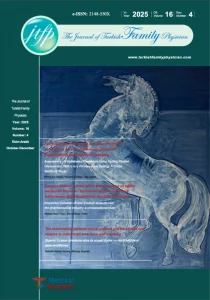Glucose Metabolism Duration of Acute Infection: A Case Presentation
The events such as illness that cause stress leads to increased gluconeogenesis and insulin resistance. The blood glucose level rises as a result of the increased gluconeogenesis and insulin resistance. Ability used to glucose of tissues reduces. We wanted to draw attention to glucose metabolism during acute infection with a case. The patient was four years old and was taking antibiotics for three days. Results of the analysis indicated diabetic ketoacidosis. Two hours after receiving the patient, the statement of diabetic ketoacidosis improved. It was learned that the patient’s diet was mainly carbohydrate during the last three days. The patient proposed a high-protein diet was discharged. As a result, during infection, the patient’s diet should be poor in carbohydrate and rich in protein.
References
- Murray RK, Bender DA, Botham KM, Kennelly PJ, Rodwell VW, Weil PA. Oxidation of Fatty Acids: Ketogenesis. In “Harper’s Illustrated Biochemistry”. 28th ed. China, The McGraw-Hill Companies. 2009;22:187-196.
- Guyton AC, Hall JE. Endocrinology and Reproduction. In “Textbook of Medical Physiology”. (eds) Schmitt W, Gruliow R. 11th ed. Pennsylvania, Elsevier Inc. 2006;78:961-977.
- Srinivasan V. Stress hyperglycemia in pediatric critical illness: the intensive care unit adds to the stress. J Diabetes Sci Technol 2012 January;1(6):37-47.
- Robinson LE, VanSoeren MH. Insulin resistance and hyperglycemia in critical illness: role of insulin in glycemic control. AACN Clin Issues 2004 JanMar;15(1):45-62.
- Fahy BG, Sheehy AM, Coursin DB. Glucose control in the intensive care unit. Crit Care Med 2009 May;37(5):1769-1776.
- Grey NJ, Perdrizet GA. Reduction of nosocomial infections in the surgical intensive-care unit by strict glycemic control. Endocr Pract 2004 MarApr;10(2):46-52.



